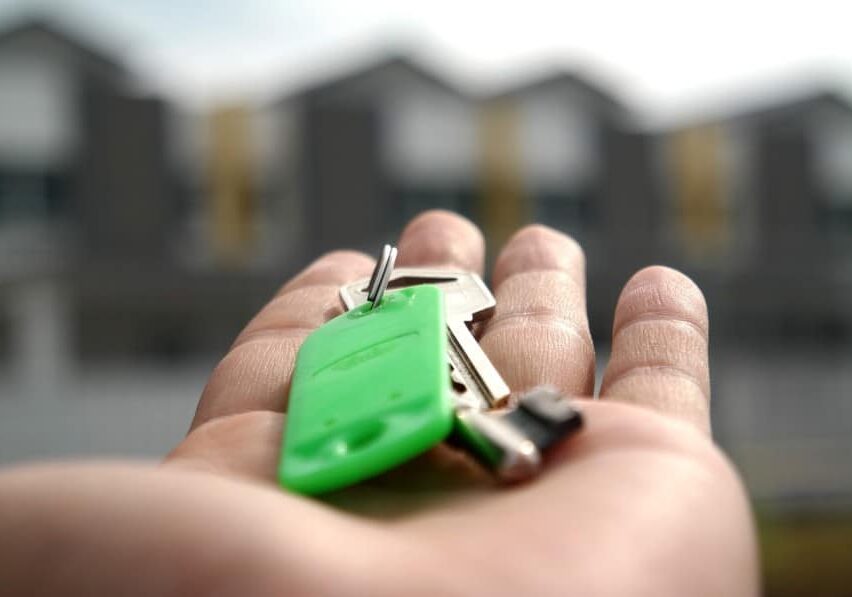Updated: July 1, 2025
Conveniently situated near a breathtaking string of beaches, Lisbon – Portugal’s largest city and capital – offers a lifestyle that caters to diverse tastes.
Buying property in Lisbon, Portugal, would be an excellent financial investment and lifestyle choice as this cosmopolitan hub is a major tourist destination, attracting young professionals, digital nomads, and expat retirees from other European countries and across the globe.
From the cultural heart of Baixa with its rich cultural history to the elegance of Chiado and the vibrant nightlife of Bairro Alto, Lisbon is one of the most sought-after European cities. Lisbon features an unmatched selection of historic neighborhoods with unique charm and attractions, and offers a welcoming community living in a safe and inclusive environment.
Purchasing foreign real estate and navigating Lisbon’s real estate market involves several key steps, from drafting essential contracts and completing transactions to finalizing paperwork and property deeds.
In this article, we will guide you through the process of buying property in Lisbon and give you insights into the real estate market and property investment in Lisbon. We will also highlight the importance of securing a legal expert and international property professionals to help you manage the complex processes and successfully guide you to foreign property ownership.
Why buy property in Lisbon?
Lisbon has proved to be an excellent opportunity for expats and property investors from across the world. Often depicted as the perfect holiday location, with a sublime climate, friendly locals, and beautiful beaches, Lisbon offers a unique blend of tradition and modernity, set in the historic stage of narrow streets, grand praças, and colorful houses.
Whether you are looking for commercial properties, a second or third home, or a Lisbon real estate investment that will offer significant rental income yields, the Portuguese capital offers a generous selection of apartments, villas, offices, and more options that are perfect for property investment. You will also find a wide price range, from high property prices to more affordable prices. If buying residential property, as you move away from central Lisbon and the city center, you will find that Lisbon property prices generally fall.
Property investment Lisbon: Key reasons to invest in the Lisbon real estate market
Lisbon has a unique charm to it and attracts an array of expats from around the world who buy property here and now call the capital of Portugal home.
More than 1,044,606 foreign nationals now call Portugal home, according to the latest report from AIMA (Agency for Integration, Migration, and Asylum). Most expats choose to relocate to Lisbon, Cascais, Sintra, Porto, and Braga.
Although the residence program has now ended, the attractive non-habitual residence (NHR) scheme was a big drawcard offering significant tax benefits to expats for ten years. However, the Tax Incentive for Scientific Research and Innovation (coined the NHR 2.0) is set to take its place. The Portuguese government has welcomed international foreign investment and businesses to Portugal with open arms. This is without going into the city’s proximity to white sandy beaches and stunning coastal views that you can enjoy once you find your dream property.
Lisbon has a different price bracket compared to the rest of the country. However, when compared to other European cities, it remains very well priced considering property value, which makes buying Lisbon real estate a great investment. What’s more, Euronews has recently pinpointed Lisbon as the sixth most profitable city to invest in real estate, based on rental yields.
Lisbon luxury market exploding
Lisbon’s luxury market has also cemented itself as one of the strongest in the world in recent years, with the city now taking 4th place in the ranking of European cities with the greatest potential for appreciation in 2025, surpassing cities such as Monaco, Geneva, Paris, and Milan.
Can foreigners buy property in Portugal?
Buying property in Lisbon and Portugal is a viable option for foreign buyers, as there are no specific restrictions. However, it’s important to understand the market, the process, and potential pitfalls. Buying property in Lisbon is also relatively easy to do if you have the support and assistance of real estate professionals guiding you every step of the way.
The professional assistance of a local real estate agent in Lisbon or buyer’s agent is not a strict requirement. However, their services will prove invaluable in the long run and make the journey to becoming property owners in Portugal much easier. Make sure that the buyer’s agent or real estate agent you choose has an AMI license, issued by IMPIC. You can find out more about IMPIC on the Portuguese government website.

Of course, owning property in Portugal does not automatically grant you residency. If you are purchasing a property to visit for vacations or to live in permanently, you will need to secure one of the valid visa options Portugal offers. The visa options for non-EU citizens looking to become property owners include the Portugal D7 Visa (Retirement or Passive Income Visa), the Digital Nomad Visa, and the Portugal Golden Visa program.
Understanding the Real Estate Market in Lisbon

Due to the continued popularity of the capital city as a major tourist hub, alongside interest in foreign ownership, the average asking price for property in the city of Lisbon increased to €6,934 per square meter in 2024, while in the Greater Lisbon Area, the average asking price was €4,935. Note that this is the asking price, and the sales price can often be much less than this or, in some less frequent cases, higher. Prices can fluctuate, but prices for housing in Lisbon are generally rising.
Also, it is worth bearing in mind that prices are generally higher the closer you are to the city center. However, there are other affordable areas in Portugal, too; for example, buying property in Porto will offer slightly lower prices.
Lisbon also offers good rental income for investors, especially in popular areas. The Portuguese real estate market intelligence unit, Confidencial Imobiliário, reported significant increases in the percentage of gross rental yields on property in Lisbon in 2024. Rent prices are quite high at the moment in Lisbon, with rental yields in some key neighborhoods shown below.
- Alcântara: 5.4 percent
- Arroios: 4.8 percent
- Benfica: 5.9 percent
- Estrela: 4.4 percent
- Marvila: 4.8 percent
- Penha de França: 5.9 percent
Where to Buy Property in Lisbon
Real estate in Lisbon is one of the thriving markets in Western Europe. Although, like most European countries, prices for residential properties have increased rapidly over the past few years, the depth of the Lisbon real estate market and all the charm the capital city possesses still inspire investors and expats to buy property in Lisbon rather than other European cities.
Consider various neighborhoods like Baixa, Chiado, and Bairro Alto for different lifestyles and investment opportunities.
Areas with cheaper real estate prices include Benfica, Olivais, and Beato. If you are considering settling in a quieter area, consider Estrela. And if you are looking to be in a vibrant and multi-cultural neighborhood, consider Arroios. For neighborhoods with more of a historic feel, Alfama and Graça are great options.
You also have the waterfront district of Parque das Nações, which is reminiscent of Canary Wharf in London and features modern architecture and leisure areas. And, of course, Misericórdia offers beautiful, elegant luxury, with Avenida da Liberdade, Marvila, Príncipe Real, and parts of Chiado each offering their own unique ambiance and all prime locations on the Luxury Real Estate Lisbon list.
Real estate investment in Cascais is also very desirable and is located just a 30-minute drive from Lisbon city center. You may also want to consider a more affordable residential neighborhood in Lisbon, such as Lisbon South Bay, where, if you choose to enter the short-term rental market, you can make rental income from your property acquisition.
Regarding commercial property, while the center provides several good options, you’ll find an array of opportunities to invest in commercial property across the city as the city continues to attract companies, digital nomads, and tourists. Regardless of whether you choose to invest in residential and commercial properties, you’ll find plenty of options.
 Property types in Lisbon
Property types in Lisbon
The property market in Lisbon is dynamic and varied. You’ll find an array of spectacular property types in Lisbon and leading up the Portuguese Riviera towards Cascais. From modern apartments with stunning views of the Tagus River to spacious villas and mansions, you’ll find the depth of the Lisbon real estate market to be extraordinary. If you are considering buying an apartment in Lisbon, think first about how many bedrooms you’d like the property to have, as this will help you refine your search.
Whether you are looking to be close to the picturesque city center or prefer a country house a short drive from the city, there are plenty of options on the table. You will want to visit Lisbon and explore the different neighborhoods to ensure you choose not just the perfect property but also the most ideal part of the city for you. Buying property in Cascais Portugal can also be a smart move, and you will find more spacious properties as you move away from Lisbon’s city center, including mansions and villas.
 How to find property in Lisbon, Portugal
How to find property in Lisbon, Portugal
A good place to start is with online research, which will give you insight into the types of property available for rent or purchase and an idea of the price of property in the city. A quick property search for “buying house in Lisbon”, “buy house Lisbon”, “buy apartment Lisbon”, or “buying apartment in Lisbon” will get you off to a good start. However, seeking the professional assistance of a real estate agent or a buyer’s agent will make your property search a much easier process, as you can benefit from their expertise and local knowledge.
A buyer’s agent, such as Goldcrest, will usually have access to properties for sale that cannot be found elsewhere. Buyer’s Agents can also sometimes find Lisbon property at a slightly cheaper price. Buying an apartment in Lisbon, or a house, is much easier when you have an expert on the ground to assist you.
The key difference between real estate agents in Portugal and buyer’s agents is that real estate agents work on behalf of the seller and can get a higher commission for a higher sale. Meanwhile, a buyer’s agent solely works on behalf of the buyer, presenting no conflict of interest and improving your chances of finding the perfect property at the best possible price.
A Step-by-Step Guide to Buying Property in Lisbon, Portugal
Buying property in Lisbon, Portugal is generally straightforward for foreign buyers, with few restrictions. To successfully purchase, you’ll need to have your finances in order, provide necessary documentation, and be prepared for a competitive market.
Many foreigners buy property in Lisbon and have even been able to do so with a Portuguese mortgage and the help of an experienced lawyer, an estate agent, and a trusted financial advisor.
In the comprehensive table below on the process of buying real estate Lisbon, we have created a concise step-by-step guide to buying Lisbon real estate, which outlines the purchase process to buy property in Lisbon, legal requirements, and everything you need to know about finding the perfect property in Lisbon to make an offer and seal the deal.
Step | Description |
Step 1: Secure financing for your property | Assess your finances, explore mortgage options from Portuguese banks, and understand associated costs such as taxes, legal fees, and property registration expenses. |
Step 2: Find the perfect property | Set a budget and research the Portuguese real estate market, focusing on location, amenities, and rental potential. Seek guidance from real estate professionals like buyer's agents or real estate agents. |
Step 3: Make an offer | Once you find a suitable property, negotiate an offer with the seller, potentially facilitated by a real estate professional. Consider having a buyer's agent representing your best interests during negotiations. |
Step 4: Reservation Agreement and CPCV | After an offer is accepted, a Reservation Agreement may require a refundable fee. The Promissory Contract (CPCV) formalizes the promise of acquiring real estate between parties at a future date under pre-defined conditions and includes a deposit to secure the transaction. We recommend that the signing of the CPCV is done in front of a Notary. |
Step 5: Signing the Escritura | The Escritura, or Final Deed, officially transfers property ownership. Signed before a Notary, it involves paying remaining balances and fees. After signing, the buyer becomes the official owner, concluding the process. |
Buying Real Estate Lisbon: Requirements for a Successful Property Purchase
An essential part of the process when buying property in Lisbon and Portugal is applying for a Portuguese NIF number and opening a bank account. You will need an NIF to make any significant financial transactions in the country, whether you are considering investing in the Lisbon residential real estate market or acquiring a commercial property. Our partner, Global Citizen Solutions, offers a comprehensive guide about how to get a tax identification number (NIF) in Portugal.
 Portuguese tax number (NIF)
Portuguese tax number (NIF)
You will need a NIF, the Portuguese tax number, to open a bank account in Portugal. You can apply for a NIF number yourself at your local tax office or get an attorney to assist you. If you are a non-EU citizen, you will need to have a fiscal representative. To avoid having to go to the local tax office, you can also apply for your NIF number online.
 Portuguese bank account
Portuguese bank account
When buying property in Lisbon Portugal, it is recommended to open a Portuguese bank account to avoid transaction fees when making your purchase. There are a variety of Portuguese banks to consider, many of which offer mortgages for foreign buyers.
Required Documents to Buy Property in Lisbon

Working with a real estate lawyer Lisbon offers will prove to be an invaluable asset as they will be able to assist you with getting the documents you need in order and completing due diligence checks on the property on your behalf.
To buy property in Lisbon, you will need the following documents:
- Photo ID: A valid identification document that verifies your identity.
- Contrato Promessa de Compra e Venda (CPCV) or Promissory Agreement and Property Deed: The promissory contract outlines the terms and conditions of the property purchase. This is a common first step, requiring a down payment. It’s best to ensure you do proper due diligence before this step to avoid potential issues like bankruptcies or the seller disappearing before the deal is finalized. The final step is signing the property deed, which must be done in the presence of a Notary or solicitor.
- Energy Certificate: The property’s energy certificate is a document that provides information about the energy efficiency of the property and must be presented to you by the seller.
- Imposto de Selo: The stamp duty payment, which is a tax required by the Tax Authority (Finanças) for property transactions.
- Caderneta Predial: The land register document that contains information about the property, including its location, boundaries, and registered owner.
How to Buy Property in Lisbon: Financing Your New Home
It is important to understand if you will need a mortgage and, if so, what the mortgage options are in Portugal. The maximum one can borrow depends on the loan-to-value.
For residents with a fiscal number, the maximum one can borrow is 90 percent for a permanent home (80 percent for a second home). For non-residents, the maximum loan-to-value mortgage ratio is 70-75 percent.
Get your budget straight
After thoroughly researching property prices, it is important to create a clear budget that takes the additional property costs, from initial application fees to property taxes. Be prepared to make a down payment, typically 10 to 20 percent for Portuguese residents and 30 to 40 percent for non-residents, if financing through a loan or mortgage.
Financing your property: Mortgages
If you have the capital, you can purchase a property in Lisbon with a once-off payment. However, there is also a great selection of mortgage options available from financial service providers, including BBVA, Santander, Banco Best, Bankinter, and Banco CTT. While not always necessary, you’ll need financial documentation and a Portuguese bank account if you plan to get a mortgage.
Buy property in Lisbon: Types of mortgages
There are over 15 banks in the country that provide various mortgage options to get a mortgage in Portugal, although all comply with the Bank of Portugal’s standardized regulations. There are two main types of mortgages, namely the fixed-rate mortgage and the variable-rate mortgage.
Fixed-rate mortgages
You will pay a constant rate over a set period, protecting you against fluctuation changes. This is agreed upon with the financial institution when requesting financing for your property. It can be fixed for the entire lifespan or, more commonly, for a certain time before reverting to a variable-rate mortgage. There will also be a small fine for early repayment.
Variable-rate mortgages
Your monthly payment fluctuations depend on an index (usually Euribor). Payments are revised on a six or 12-month basis. Early repayments require a small fee of around 0.5 percent.
Exploring Taxes and Fees when Buying Property in Lisbon
Expats and locals both will need to pay taxes when purchasing property in Portugal, whether the property is in Lisbon, buying property in Lagos, Portugal, or buying property anywhere else in the country. So, you will need to anticipate paying fees and the other property costs involved besides the standard property prices, which include legal fees, agency fees, property taxes, and possibly capital gains tax if you ever decide to sell the property.
These additional real estate acquisition costs will either need to be paid at the time of purchase or on an annual basis following the purchase.
At the time of purchase
Below are the property taxes that you will need to consider when buying property in Portugal at the time of purchase.
Property purchase tax (IMT)
The (IMT) Imposto Municipal Sobre as Transmissões Onerosas de Imóveis (Municipal Tax on Onerous Transmissions of Real Estate) is a property transfer tax paid when purchasing Portuguese property.
The tax rate for this property purchase tax ranges from 0 to 10 percent and is applied to the property’s purchase price. The 0 to 8 percent range depends on factors such as the price, location, property type, and intended use of the property, for example, whether it will serve as a permanent residence or secondary housing. The 10 percent rate applies if the buyer has connections to territories with favorable taxation schemes, also known as blacklisted jurisdictions.
Stamp duty
Imposto do Selo (Stamp Tax) is an additional transaction tax that may need to be paid. Real estate transactions are usually subject to a rate of 0.8 percent.
Taxes after the property purchase
Below are the property taxes that you will need to bear in mind on an annual basis.
Municipal Property Tax (IMI)
The (IMI) Imposto Municipal sobre Imóveis (Municipal Property Tax or Immovable Property Tax) is an annual tax established annually by the municipality and is determined by the area in which your property is located. The amount is usually between 0.3 and 0.45 percent for urban properties (which can go up to 0.5 percent in certain situations) and 0.8 percent for rural properties. Note that the IMI is levied on the tax value of the property and not on the price paid for the property.
Additional to IMI (AIMI)
AIMI is a tax that you will need to pay if your property is valued at over €600,000. This will range from 0.7 to 1.5 percent, depending on the price.
A 0.7 percent tax applies to property valued between €600,001 and €1 million, a 1 percent tax on property valued between €1 million and €2 million, and a 1.5 percent tax on property valued above €2 million.
The €600,000 threshold is individual. For jointly owned property with a partner, the AIMI only applies if the property’s value exceeds €1.2 million.
Capital Gains Tax
You will be subject to Capital Gains Tax when you sell your property. There are exemptions to paying Capital Gains Tax should you choose to reinvest the money you got from the sale back into the Portuguese real estate market. For information on Capital Gains Tax, you can consult our article: Capital Gains Tax Portugal: Your Definitive Guide.
The Costs of Buying Property in Lisbon
When preparing to purchase property in Lisbon, Portugal, it’s crucial to factor in the various one-off costs essential for the transaction. These include Notary and registration fees, attorney fees, transfer tax (IMT), stamp duty fees, and potential expenses related to the land registry. Additionally, there might be legal fees if legal assistance is sought during the property-buying process.
Pitfalls of Buying Property in Lisbon, Portugal
When entering the property market in any country, there are pitfalls that can trip up even the most experienced property buyer. Below, we provide some key pitfalls to watch out for so you can ensure a more straightforward and hassle-free buying process.
Property location: Make sure that you are 100 percent happy with the location of the property and that it has access to all the services and amenities you need, such as restaurants, schools, or beautiful beaches. Visit the neighborhood at night also as a place can have a very different feel to it depending on when you visit.
Legal issues: We can’t stress enough the importance of working with an experienced property lawyer to make sure that the property purchase is stress-free and that you won’t face any legal battles further down the line. This includes checking out both the property itself and the seller to ensure they have the right to sell. Be aware of potential issues with promissory agreements, such as the seller potentially going bankrupt or disappearing before completion.
Taxes: We’ve mentioned the taxes that you’ll need to pay, but make sure you fully understand your tax requirements. You can always work with a tax accountant to make sure that everything is in order.
Title deed verification: Make sure you check the property title deeds to avoid any disputes or legal complications in the future. Again, a lawyer can help you with this.
Act fast: Lisbon is a popular market, so be prepared to act quickly when you find a property you like to avoid missing out.
Avoid buildings with deferred maintenance: Buildings with poor maintenance can be a sign of future problems.
Make sure the building has an administrative record: Buildings may have been constructed with no administrative record, and you may need to make sure that your purchase incorporates a “rectification process” to update teh records and also legitimize the existing structures that do not have proper planning permission. The difficulty here is often agreeing with the seller to sort this out and work out who should pay for it. A real estate professional will be able to advise you on the best way to proceed.
Is it worth buying property in Lisbon?

- No restrictions on foreign property investment
- Investing in a dynamic market with a high return on investment potential
- Low cost of living compared with other countries in Western Europe
- Sublime climate with incredible summers and mild winters
- Top-quality education and healthcare services
- The luxury market is booming in 2025, with Lisbon’s price appreciation for luxury properties set to rise by 4.5 percent, surpassing Monaco, Geneva, Milan, and Paris.
Consider these benefits and potential pitfalls you may encounter during the process. These potential pitfalls could include legal complexities with property title deeds or debts attached to the property that could lead to lengthy legal battles. Seeking the professional services of a buyer’s agent or experienced local real estate agent will help you understand the intricacies of property purchases in Portugal’s capital city, navigate setbacks, and save you from potential issues.
Lisbon is also experiencing ongoing infrastructure and policies to boost development. You can find out the latest on the website of the Lisbon Municipality.
Goldcrest: Seeking Professional Advice When You Buy Property in Lisbon
Goldcrest is a buyer’s agent that is based in Lisbon, Porto, and the Algarve. Equipped with local knowledge, exclusive networks, and international experience, we provide expert, impartial advice on property investments and how to buy property in Lisbon, Portugal. From scouting out the perfect property through to property acquisition, we have you covered throughout the process.
Our team of skilled experts is available to cater to all your real estate needs, offering insightful expertise and strategic advice. Having someone on your team who speaks the local language is also helpful, especially when signing the property deed. Goldcrest can assist with this, too. Book a complimentary call with us today.
Frequently Asked Questions about Buying a House in Lisbon Portugal
Are there any restrictions to buying a house in Lisbon as a foreigner?
There are no restrictions on buying a house in Portugal as a foreigner. However, if you are a non-EU citizen, you will need to have a valid residency permit to live in Portugal.
Where are the best neighborhoods to buy a house in Lisbon, Portugal?
If you are looking for luxury homes when buying real estate in Lisbon, consider Avenida da Liberdade, Príncipe Real, and Baixa Chiado.
Estrela is good for families, Arroios is the hip neighborhood, and Parque das Nações offers a contemporary and futuristic vibe. Cascais real estate is also an attractive option to find a beautiful house with sea views.
When buying property anywhere, you should have a real estate agent and a lawyer by your side. For example, if you are thinking about buying property in Cascais, make sure to work with a real estate lawyer in Cascais and have a property specialist to ensure a smooth property purchase.
Do I need a lawyer when buying a house in Lisbon?
Although professional assistance is not strictly required to buy property in Lisbon, acquiring the services of an experienced real estate lawyer and English-speaking real estate agent or a buyer’s agent who has vital knowledge about Lisbon real estate, property in Portugal, and real estate market legalities is recommended.
What are the additional fees when buying a property in Lisbon?
Besides, the property’s asking price costs are essential to factor in, which include Notary and registration fees, attorney fees, transfer tax (IMT), stamp duty fees, and potential expenses related to the land registry.
How much do I need for a deposit payment?
The deposit for Lisbon property usually lies between 10 to 25 percent of the purchase price, although this can be lower if both the seller and buyer agree.
Is property in Lisbon expensive?
Property in Portugal’s cosmopolitan capital city is highly sought-after and, therefore, more expensive than other regions of this stunning Western European country.
In 2024 in Lisbon, the average asking price for property was €6,934 per square meter, while in the Greater Lisbon Area, the average asking price was €4,935. Note that these are asking prices, and sales prices can be significantly lower than this – or higher in certain situations, although this is less common.
Is property cheap in Lisbon?
In 2024 in Lisbon, the average asking price for property was €6,934 per square meter, while in the Greater Lisbon Area, the average asking price was €4,935. Property prices in Portugal vary according to the neighborhood you are looking to invest in and whether you are in search of a residential or commercial property. You will find cheap property more readily available as you move away from central Lisbon.
What is the average price of a property in Lisbon?
In Lisbon, the average asking price for property was €6,934 per square meter in 2024, while in the Greater Lisbon Area, the average asking price was €4,935.
Property prices in Portugal vary depending on the neighborhood and whether you are looking for residential or commercial real estate. If you are looking for cheap property, you should look outside the popular locations. Plus, property prices tend to fall as you move further away from the popular and picturesque city center.
Where do most expats live in Lisbon?
The best neighborhoods in Lisbon for expats include Alcântara and Anjos, which are modern areas that attract digital nomads and young professionals. Areas like Alfama and Graça offer authentic Portuguese charm and living experiences, while areas such as Estrela and Lapa are popular choices for families.
Where can I find Lisbon real estate beachfront properties?
Start looking for beachfront properties online by visiting online listing websites and real estate agencies. Once you have an idea of what you are looking for and the location you are looking in, you can contact a real estate agent or buyer’s agent for assistance with the process.
A buyer’s agent like Goldcrest will also be of great value as they will have access to exclusive listings through their network and solely work on your behalf as the buyer.
What are the pitfalls of buying property in Lisbon?
There are several potential pitfalls you could encounter when buying property in Lisbon Portugal, which is why seeking the professional services of a buyer’s agent is highly recommended. Potential issues may include legal complexities with property title deeds or debts attached to the property, overlooking local regulations or tax laws, and unforeseen issues related to location.
Is now a good time to buy property in Lisbon?
While housing prices are higher, 2025 is a great year for foreign investors to invest in family properties or luxury properties in Lisbon, Portugal. This is due to the significant growth of rental income yields over the past few years. Rental income yields in the Lisbon Metropolitan Area stood at 6.8 percent in 2024. You will find that residential and commercial properties remain a solid investment in Lisbon, where you can get a nice return on your investment. Should you be looking for affordable prices, you will find prices fall considerably as you move further away from the city center.
What is IMT tax?
Calculated based on the property’s purchase price value or declared amount in the deed, the IMT (Municipal Tax on Onerous Transmissions of Real Estate) is a property transfer tax that needs to be paid before the purchase is completed. The rate varies from 0 to 8 percent based on factors like property type, location, purchase price, and intended use.
Can foreigners buy property in Lisbon?
Yes, foreigners buying property in Lisbon Portugal will face no restrictions. Lisbon is an attractive expat and tourist destination and offers visitors and residents alike a high quality of life. This fosters a great environment for potential returns on investment, whether you are in search of a property in Portugal for residence or investment.
Is it worth buying property in Lisbon?
Lisbon offers excellent investment potential with rising property values, a booming tourism industry, and a vibrant lifestyle, making it a lucrative choice for buyers seeking both short-term gains and long-term appreciation. Families and retirees will also find the Portugeuse capital a charming destination to relocate to, while young professionals are also relocating to the city given its affordable prices, booming tech scene, incredible climate, and old-age charm.
Is Lisbon property overpriced?
While Lisbon’s housing market has seen significant appreciation, with property prices rising drastically in recent years, it remains attractive compared to other European capitals.
After a quick search for “buying real estate Lisbon”, “buying apartment in Lisbon” or “buy apartment Lisbon” to get to grips with the market, make sure to speak with real estate professionals for full market access. Property prices reflect the city’s growing popularity, but speaking with real estate experts can still uncover good value investment opportunities. You will find affordable prices should you move away from the city center and downtown Lisbon.
Is buying property in Lisbon a good investment?
Lisbon is emerging as a sought-after destination for property investors, with expectations of a 1.3 percent year-on-year GDP growth in 2024, followed by a projected 1.8 percent in 2025. Additionally, employment is on a steady rise, attributed in part to an influx of foreign workers. Wages have outpaced inflation, contributing to the city’s economic vibrancy.
What are the legal requirements for foreigners buying property in Lisbon?
To buy property in Lisbon, you will need to have the following documents:
- A Portuguese tax identification number (NIF)
- A Portuguese bank account
- Photo identification, like your passport
- Proof of address
- Contract of sale
- Energy Performance certificate
- Stamp tax
- Land Registry document
How does the property buying process work in Lisbon?
To buy a house in Portugal, follow these steps:
- Decide if you need a Portuguese mortgage
- Find your ideal property
- Negotiate terms
- Reservation Agreement
- Sign the Promissory Contract
- Finalize with the Escritura (Final Deed)
What are the associated costs of buying a house in Lisbon?
Notary and registration fees, attorney charges, transfer taxes (IMT), stamp duty fees, and expenses linked to the land registry will need to be paid alongside the price of the property.
What are the best areas in Lisbon to buy property?
The center of Lisbon, encompassing areas such as Baixa, Avenida, Bairro Alto, and Principe Real, is the most sought-after location for property purchases. However, the best area will depend on what you are looking for. For example, Estrela and Lapa may be better suited to families, while Arroios and Anjos may be better for young professionals.
Regarding commercial properties, while the center of Lisbon is a safe bet, investment opportunities for commercial properties are opening up across the city.
What are the steps for buying property in Lisbon, Portugal as a foreigner?
To buy property in Lisbon, research the market, hire a local real estate agent, obtain a fiscal number (NIF), open a Portuguese bank account, secure financing, make an offer, sign a promissory contract, and complete the final deed at the Notary.
How to find the best real estate agents for buying property in Lisbon?
Find the best real estate agents by researching online reviews, seeking recommendations from locals or expatriates, and verifying their credentials. Look for agents with a deep understanding of the Lisbon market and who have helped expats in similar positions to yours. It’s worth bearing in mind that real estate agents in Portugal work on behalf of the seller and will get a higher commission for a higher sale. As such, working with a buyer’s agent can be a better option as they work solely on behalf of the buyer, ensuring that your interests are protected.
What are the financing options available for buying a house in Lisbon?
There are more than fifteen banks in Portugal that offer mortgages for foreign buyers, offering variable and fixed rate mortgages. For non-residents in Portugal, the maximum loan-to-mortgage ratio is 60-70 percent on the purchase price (or bank appraisal), but this can very depending on the bank you opt for.
What taxes and fees should I expect when buying real estate in Lisbon?
When foreigners purchase property, they should be aware of both purchase and annual property taxes. At the time of purchase, you’ll need to pay Property Transfer Tax (IMT) and Stamp Duty. Annually, you’ll be responsible for paying Municipal Property Tax (IMI).
On top of this, bear in mind legal fees, real estate agent fees, Notary fees, and land registration fees.
How long does it typically take to complete a property purchase in Lisbon?
Buying property in Portugal typically takes about 1-4 months. However, the timeline can vary, sometimes taking longer or even being quicker. This timeframe includes thorough due diligence, obtaining necessary documents, and fulfilling other requirements.
What should I know about the Golden Visa program when buying property in Lisbon?
The real estate pathway of the Portugal Golden Visa is no longer available. There remain other options on the table, such as the popular Golden Visa investment funds route.
How to negotiate property prices when buying a house in Lisbon, Portugal?
Negotiate real estate prices by researching market values, understanding the seller’s motivation, and being prepared to make a fair offer. Hiring a skilled real estate agent or buyer’s agent can help leverage their negotiation expertise. At Goldcrest, we work solely on your behalf to secure your ideal property at the best possible price.
What are the pros and cons of buying a newly built vs. an old house in Lisbon?
Newly built houses offer modern amenities and lower maintenance, but may be pricier. Older houses offer historic charm and potential for renovation, but require more upkeep. It’s important that you consider your budget and long-term plans when deciding on which option is better suited to you.
What documents are needed for buying real estate in Lisbon?
To buy property in Lisbon, you will need:
- Photo ID: Valid identification
- Contrato Promessa de Compra e Venda (CPCV): The property purchase contract
- Energy Certificate: Provided by the seller, details the property’s energy efficiency
- Imposto de Selo: Stamp duty payment required by the Tax Authority.
Caderneta Predial: Land register document with property details.
How to manage property maintenance and rentals after buying a house in Lisbon?
Manage maintenance and rentals by hiring a property management company, setting up regular inspections, and establishing clear rental agreements.
Utilizing local services ensures smooth operations and protects your investment. Should you be looking for property management services, Goldcrest can assist with property set-up, property management and maintenance, and leasing of the property (for long-term rentals).
How to find affordable real estate options in Lisbon's competitive market?
Find affordable options by exploring emerging neighborhoods and tapping into the expertise of local real estate agents or buyer’s agents to pinpoint particularly attractive real estate investment options in Lisbon.
What legal pitfalls should I avoid when buying property in Lisbon as a foreigner?
Avoid pitfalls by having all the required documents with you, understanding local regulations, and hiring a reputable lawyer. Thorough due diligence will help you avoid legal issues, safeguarding your investment.
What is the process for buying a house in Lisbon for non-EU citizens?
Non-EU citizens need a Portugeuse tax number (NIF) and a tax representative, and it is recommended to open a Portugeuse bank account to save on transaction fees. The process involves the property search, securing financing, making an offer, signing a promissory contract, and finalizing the sale.
You will also need to get a residency permit should you be looking to relocate to Portugal, with popular options including the D7 Visa, Portugal Golden Visa, and Digital Nomad Visa.
What are the benefits of buying property in Lisbon, Portugal?
Benefits include a stable real estate market, potential for property appreciation, and a high quality of life that remains affordable compared to other Western European countries and the USA.
Can Americans buy property in Lisbon?
Yes, Americans can buy property in Lisbon without restrictions. You will need to have a Portuguese tax number (NIF) and appoint a tax representative. It is also advisable to open a Portuguese bank account to minimize transaction fees. The process involves searching for a property, securing financing, making an offer, signing a promissory contract, and finalizing the sale. If you plan to relocate to Portugal, you will need a residency permit. Popular options include the D7 Visa, Portugal Golden Visa, and Digital Nomad Visa.
What is the role of a notary in the property buying process in Lisbon?
A Notary verifies and authenticates documents, ensures legal compliance, registers the property transfer, and oversees the signing of the final deed. They play a crucial role in finalizing the purchase legally.
Can foreigners get a mortgage for buying property in Lisbon?
Yes, foreigners can obtain mortgages from Portuguese banks, with more than 15 banks offering financing options to foreign buyers.
Is Airbnb profitable in Lisbon?
Yes, Airbnb can be profitable in Lisbon due to high tourist demand and occupancy rates, especially in central areas. Profitability depends on location, property quality, and seasonality. Lisbon’s popularity has made it a strong market, but rising regulations may impact future profits as, at the moment, securing an Alojamento Local (AL) License, which is needed to rent out property short time, is not possible in Lisbon and other key cities.
What is the average rental yield in Portugal?
Portugal’s average rental income yield typically ranges from 4 to 7 percent depending on location. The average rental yield in the Lisbon Metropolitan Area is 6.8 percent, and in Lisbon City stands at 5.2 percent.
What is a good rental yield?
A good rental yield generally falls between 5 to 8 percent, providing a balance between income and investment risk. Higher yields often indicate a favorable return but might involve greater risks, while lower yields can be more stable but less profitable.
What are the most popular areas to buy property in Lisbon?
The most popular areas to buy property in Lisbon are in the center, around Baixa, Avenida, Bairro Alto and Principe Real.



